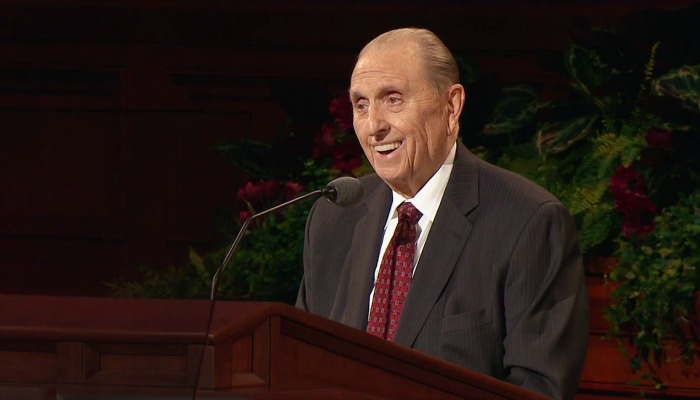To Swear Or Not To Swear! That’s Not Really The Question
Let’s say you’re at track practice and you reach down to pick up a shot put ball when another shot put ball comes rolling out of nowhere crushing your ring finger between the two steel balls. Blood is oozing from your finger and you can only think, “Don’t swear. Don’t swear. Don’t swear.”
Why is it that whenever painful things like this happen, or someone cuts us off in traffic we want to shout out expletives? Why is it that makes us feel the emotional need to punctuate our rage with pithy four-letter “bombs”? Who decided what is bleep-worthy and what isn’t?
Swear words are interesting aspects of culture. They show what a culture values and considers taboo. They are easy words to use. No one ever explained to us, though, why they exist. Hopefully, this article makes you think twice about all the words you use, especially swear words.
The Origins

Thou shalt not take the name of the Lord thy God in vain; for the Lord will not hold him guiltless that taketh his name in vain. -Exodus 20:7
In the quote to the right, we are told to avoid taking the name of God in vain. This is really the essence of swear words. They are profane. ‘Profane’ is a really cool word that tells us a lot.
Profane comes from old Latin. Pro means before and fanum means temple. The Latin word profanus, the two words together, literally means before or outside the temple. It expresses the idea of not being able to enter the holy place, being secular, or being outside of the temple. For modern Mormons, this old definition should resonate.
Swear words originally had to do with holy religious things. It made fun of them and held them in contempt. Later during the 18th and 19th centuries, taboo words, or words considered culturally unacceptable, began to be used as profanities. These were topics that weren’t common or usual to discuss. They continually evolve and take on new meanings.
Swear words are culturally specific and even can mean different things across demographics. Even the context of certain swear words can affect their gravity. This can be quite confusing for someone learning a new language. Some words become offensive based on with whom and how they are used.
Because researching swear words will expose you to… well, swear words, I’d recommend engaging in this sort of a study at your own risk. Be aware that secular scholars will use these words “academically” so be careful. If you don’t want to go through that, Wikipedia might be a good place to start.
Today’s Challenge
 The Lord has counseled His Saints to avoid this type of language. Especially when using the appellations of deity, we are told use the utmost respect and honor. Obviously, this makes sense. We wouldn’t want our children to disrespect us. Neither does the Father of Creation.
The Lord has counseled His Saints to avoid this type of language. Especially when using the appellations of deity, we are told use the utmost respect and honor. Obviously, this makes sense. We wouldn’t want our children to disrespect us. Neither does the Father of Creation.
We are instructed even to avoid lewd and immoral jokes. We should honestly avoid anything lewd and immoral even if we are “just kidding.” From churchofjesuschrist.org we learn that “Foul language is both degrading and harmful to the spirit. ” Our spirits are just like our bodies in that they need good nourishment and exercise. If we do things that are wrong, we can injure our spirits.
This may be a challenge for some, and may not even make sense, but it’s a worthwhile goal. As we’ve said, what you say affects your spirit. If you don’t have the Spirit, do everything you can to get it. Here are some suggestions on feeling the Spirit even more. Whatever you do, be mindful of the example you set and the path you wander.
The Principle
 Elder David A. Bednar once taught the distinction between doctrine, principle, and application. He taught that doctrines are the “why” of the Gospel and never change, principles are the “what” of the Gospel and may change based on revelation, and applications are the “how” of the Gospel and change much more often. I submit that swear words are a great example of this teaching.
Elder David A. Bednar once taught the distinction between doctrine, principle, and application. He taught that doctrines are the “why” of the Gospel and never change, principles are the “what” of the Gospel and may change based on revelation, and applications are the “how” of the Gospel and change much more often. I submit that swear words are a great example of this teaching.
The Doctrine of swearing is that our actions have a direct impact on who we become. We want to become like Christ because then we can be happy forever. The Principle is that we must watch what we say and how we say it. If we don’t it will damage our spirits, and likely the spirits of others. Our example speaks louder than our words. The Application is just the specific words we do or don’t say.
If you haven’t guessed, this article isn’t really about swearing. What we say is less important than why we say it, or why we choose not to say it. We should each strive to monitor what we say and why we say it. If our intentions aren’t that great, we should probably not say it.
Don’t Swear
That’s just a blanket statement. What I really want to say is: “Don’t swear, profane, blaspheme, make lewd jokes, treat holy things lightly, or use words in a negative way ever!” It really makes a difference. I think we could all improve our words because as James 3:2 puts it “If any man offend not in word, the same is a perfect man, and able also to bridle the whole body.” I think we should all try to be a little more perfect.
Go ahead and share your experiences (without using swear words) below.


